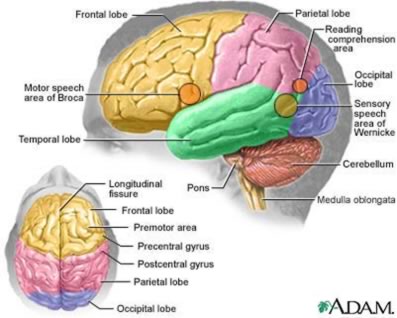Are We Multi-tasking Our Children Into Attention Deficit Disorder?

In today's job market, the competition is tough all over, and if you aren't able to multi-task, you can hang up the idea of landing that coveted position you've been angling after. Open any newspaper to the help wanted section and the first requirement in a long list of requirements is the ability to multi-task. Job postings on websites are no different. If you manage to score the interview, you will most certainly be asked to list examples of past multi-tasking feats you've accomplished.
Recent studies are indicating that the idea of multi-tasking may just be wishful thinking on the parts of those who want greater productivity for their money, as well as those who believe they are very talented and skilled in their abilities to do so. Last year, French scientists Sylvain Charron of the Institut National de la Sante and Etienne Koechlin of the Ecole Normale Superieure, discovered that the structure of the brain limits the ability of humans to make more than two choices at once.
Their report which appeared in Science magazine suggests work is divided in half by the brain's two lobes automatically. The authors warn that overloading the brain with more than two tasks actually reduces its ability to function as effectively as it would with a lesser workload. The brain's anterior prefrontal cortex (APC) gives humans the ability to pursue several goals at once. However, using brain imaging, the authors observed that the medial frontal cortex (MFC) which motivates pursuit of the goals through single task performance, becomes divided under dual task conditions. The left MFC encodes rewards for one task while the right MFC does the same for another. The same process was observed in the lateral frontal cortex. What the observations demonstrate is that human frontal function seems to be limited to only motivating the pursuit of two goals simultaneously.
During an interview with Newsweek, Koechlin explained that since higher cognition is dual in essence, it's easily understood why people can switch back and forth between two options in order to make a decision, but have difficulty when deciding between three. It's because of this that he claims tackling three or more tasks at the same time would overwhelm the human brain's frontal function capacity. The findings suggest that the frontal function simply cannot keep track of more than two tasks at once.
Exactly what is multitasking? Actually there are two different types of activities we often refer to as an example of multitasking. The first one is the combination of routine tasks such as talking on the phone while washing the dishes. There are only two activities going on here, and this kind of multitasking might actually improve one's concentration.
It's the other type of multitasking that is raising questions about the dangers associated with it. It's defined as rapid task-switching where one attempts to juggle two or more activities which require equal amounts of concentration and focus. Five years ago, a study completed at UCLA provided evidence that multitasking adversely affects how we learn because of the different system being activated compared to what's activated when focused on a single task. Those assigned to multitasking proved to have a lesser grasp on the materials used due to the continued interruptions caused by switching between tasks. The study showed that multi-tasking for simple repetitious tasks such as listening to music while doing dishes, may be okay but it's not the best idea when attempting to learn something new.

Another study from MIT showed that when students attempted to balance several tasks at once, their brain activity “went dark” for short periods every time they switched between tasks. In a similar study, the University of Michigan found that it took people ½ a second to a full second for their brains to make the switch when changing focus between even the most basic of tasks. Those attempting to switch between more complex and creative projects may require up to a full minute to make the switch. If we employ this frenzied switching back and forth throughout the day, our productivity is reduced by 20 to 40%.
There are a number of reasons this type of multitasking is counterproductive. In actuality, multitasking in this sense of the word is fiction. The most attention we can ever give at one time is 100%. When we are actively doing two things at once, we are essentially dividing that focus to only 50%, unless we are switching back and forth between the two. Continually diverting our attention from one task to another impedes our ability to allow work to flow quickly and fluidly which results in a better quality of work.
In addition to the obvious loss of quality, there is a very real danger associated with continued and increasing multitasking activities. The prefrontal cortex which allows for the pursuit of two goals simultaneously, is also one of the areas most affected by stress. Multitasking creates tons of stress in the effort to shift focus over and over again throughout the day. The increased release of stress hormones and adrenalin can cause long-term health problems if not controlled, and contributes to loss of short-term memory. The constant killing of brain cells in this area hampers the ability to learn and retain information over the long term. A research study funded by Hewlett-Packard and conducted by the Institute of Psychiatry at the University of London, found that “Workers distracted by e-mail and phone calls suffer a fall in IQ more than twice that found in marijuana smokers.”
Dr Edward Hallowell is a Massachusetts based psychiatrist specializing in the treatment of Attention Deficit/Hyperactivity Disorder. He has described a new condition associated with extreme multitaskers as that of “Attention Deficit Trait,” claiming it is out of control in the business sectors. Describing the trait as “purely a response to the hyper-kinetic environment in which we live,” he also claims the only way for the human brain to track so much data is by control through creatively engineering one's environment, emotional and physical health.
Researchers at the University of California at Irvine observed interruptions among office workers and found there was an average of 25 minutes of recovery time used after interruptions such as answering e-mail and phone calls, before returning to their original task. Only 12 minutes is the average employee's attention span, but they switch tasks every three minutes, suffering an interruption every two minutes, according to Gloria Mark, a professor at the University of California, Irvine. Business analyst Jonathan B. Spira has estimated that information overload by way of multitasking, costs the U.S. Economy $650 billion a year in lost productivity.
An important question to ask when addressing the prevalence of required multitasking in our world today, is just what it all means for our children and teens? If multitasking changes the way people learn, what does the simultaneous use of several different media such as the internet, cell phone apps, video games, etc. herald for our youth?
With diagnoses of Attention Deficit/Hyperactivity Disorder on the rise, these are important questions to ask. Is our habit of multitasking causing our children to become less interested in learning and more geared toward highly stimulated methods of education? If we give in to the demand for more stimulation in the educational arena, are we in essence “hard-wiring” them for multitasking rather than teaching them the focused critical thinking necessary to achieve success? Are we contributing to their conditions of attention deficit and then drugging them toward achievement in spite of our contributions?
If you found this information useful, why not pass it on to friends and family by clicking the Tweet, Like, or +1 buttons provided at the top of the page?
- Is Brain Enhancement The Smart Way To Progress?
Is drug-induced brain enhancement an ethical solution to keeping up with intellectual progress? Or is it a quick way to turn healthy adults into patients suffering from a multitude of nervous disorders and other physical symptoms? This article presen - Shaken Baby Syndrome - Manmade Myth
- The Need To Be Right
The Need To Be Right takes a look at what causes both skeptics and those who believe in a cause to become so extreme as to allow emotions to cloud better judgement. - Are Your District's Teachers Worth Their Salaries?
A look at the workload vs payscales of teachers of the 1970s compared to the present. Commentary on the extreme decrease in workload but exceedingly high salaries of the teachers of today. Link included for researching the salary and education level









